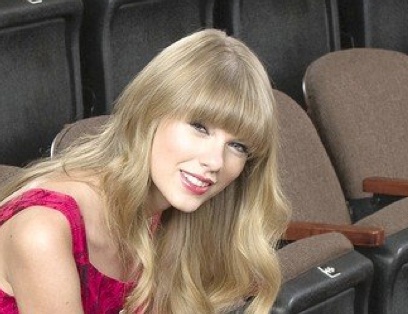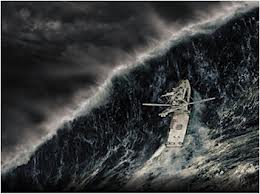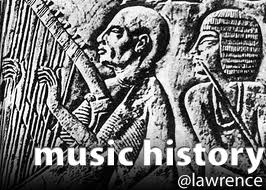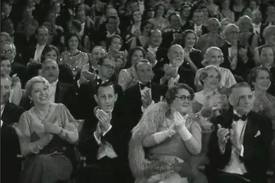Here I want to offer a radical idea: That all of us in classical music should get out of the classical music business. As I stressed at the end of my last post, this doesn't mean we should stop doing classical music. It means we should think about it differently. Here's an example. Someone I know, a veteran arts professional with a sterling resume (among other things, he ran one of the leading performing arts institutions in the US), emailed me about something he found dismaying at the New York Philharmonic. Alan Gilbert was about to conduct … [Read more...]
Concerts as events
Conversation with a friend who works for a big orchestra. We're talking about attracting a new audience. He says they're identifying classically-inclined nonattenders. I say they ought to push beyond that, to attract non-classically inclined nonattenders. That's arguable, of course. Nobody would try to get people who don't now listen to country music to try it. But then country music doesn't need more listeners, as classical music does. Or more people buying tickets to concerts. And the world is full of smart people who are inclined toward … [Read more...]
A challenge!
Austin, TX, bills itself as the "live music capital of the world." That's one thing I learned visiting there last week, to speak to students at the University of Texas School of Music. And — you saw this coming — classical music, including all the concerts given at the school, plays almost no part in Austin's live music scene. Everyone I talked to at the school said this. So there's a challenge for us. If we have a music school surrounded by what might really be the most active live music life anywhere, let's make the school part of … [Read more...]
Learning from Taylor Swift
Or from her marketers. I've said before that commercial marketing has gone in new directions, and that we can learn from that. The Hunger Games film, for instance -- even though it was just about guaranteed to be a hit -- launched an extraordinary campaign to get fans (who already loved the book the film's based on) to promote the movie to each other. Follow the link above for more on that. And now comes Taylor Swift, with a new album, and a marketing campaign based in part on retail tie-ins -- Walmart, Target, Papa John's, Walgreen's. The … [Read more...]
Visiting Austin
I'll be in Austin on Thursday (that's November 8), to speak to classes at the University of Texas. Don't think I'll have any public availability, which is a shame. I'd love to meet any readers who might be in the area. My host in Austin will be Robert Freeman, former director of the Eastman School, and founder of the entrepreneurship program there, which (as far as I know) is the oldest found in any music school in the US. It'll be a pleasure to meet Bob for the first time in person. Future trips this year might include Colorado and … [Read more...]
Triple whammy
I'm sure this is something we all know about — the management/musician disputes that have hit one orchestra after another, leading to seasons not starting on time, with no clear sense, in some cases, of when they ever might start. Tony Woodcock (president of New England Conservatory, and former CEO of the Minnesota Orchestra) in a blog post mentions Atlanta, Minnesota, Chicago, Indianapolis, the St. Paul Chamber Orchestra (where all concerts to the end of 2012 have been cancelled), and Jacksonville. To which we can add Spokane, where a … [Read more...]
More history
Here — from a 1975 book by George Seltzer, The Professional Symphony Orchestra in the United States — is another bit of history. (To go along with the 1951 scene of audiences applauding after each movement of a piece, that I shared in my last post.) Seltzer's book is a collection of many articles, some short, some quite long, including a New Yorker piece from 1960 (if I remember correctly; I don't have the book with me) by Joseph Wechsler that gives the best account of what it's like to play an orchestra piece -— from the musicians' point of … [Read more...]
The power of history
The hurricane is on my mind -- the devastation in NY and NJ, which (though this is a minor part of it) hits me, even while I'm safe in Washington. I go to NY weekly, and my normal transportation (for a three-pronged trip, between DC, NY, and my home in Warwick, NY) just isn't available. I'll cope, while my heart goes out to people whose problems are much worse. And meanwhile… One problem we have, when we try to imagine the future of classical music, is that we don't know enough about its past. Take something that ought to be simple -- the … [Read more...]
Still room in my online writing course
I'm ready to teach an online course in how to talk and write about music. As I blogged here earlier! The course will be based on the one I'm teaching this fall at Juilliard. Adapted as needed to what the people who work with me want to learn. Among those who've signed up so far, we have one strongly interested in criticism, and one in blogging. But I'm also prepared to work on bios, press releases, and program notes. And on how to describe music in speech! One thing we'll do is listen to music, and immediately describe how it sounds. I've … [Read more...]
(Il)literacy
Here's a question I was asked: Will technology raise the level of musical literacy? This came up in a panel discussion, during my visit last week to the University of Missouri. And as I considered the answer, something occurred to me. There's more than one kind of musical literacy. So this is what I said. In classical music, we of course think musical literacy means being able to read music. And, maybe also it means knowing about classical music — the composers, their works, the instruments, important periods in classical music … [Read more...]
A trip, and the new media trap
I'll be at the University of Missouri this week, on Thursday and Friday, for a festival called Music and New Media at the Crossroads. Among other things, i'll be speaking on a public panel Thursday at 3 PM, about new media and the future of classical music, along with Matt Haimovitz, Tod Machover, my old friend Tim Page, and members of eighth blackbird, who, along with Matt, would count as newer friends. I'm looking forward to seeing all these people, along with the moderator, Robert Shay, dean of the U of Missouri school of music. Whom I know … [Read more...]
Writing tips
Juilliard students these days don't seem to be interested in music criticism, or in music critics. I think that's partly because, if they're like most others their age, they may not read newspapers. And thus don't often read critics. But it's also because they don't think critics do a good job. This continues my previous post, about the course on how to talk and write about music that I'm teaching at Juilliard this fall. And about the online version of it I'm eager to teach, as soon as I get five or six people to enroll in it. I'm happy to … [Read more...]
How to talk and write about music
That's what my Juilliard course this semester is about. And it's what the course should be called, though this year we adopted a title that's a hybrid of what the course used to be and what it is now: "Music Criticism: How to Talk About Music." Because for many years this was a course about music criticism. But then two things happened. First, fewer and fewer students seemed interested in criticism. I might guess that's because they — like so many people under 40 — don't read newspapers, and thus don't encounter music reviews. But as my … [Read more...]
Four keys — be yourself
Don't believe anyone who tells you not to be your own artistic self. That follows from the third of my four keys to the future, "Be yourself." I explained this in terms of pandering: Your urgency, your joy, and your passion will draw people to you. But you can't be joyful if you don't love the music that you perform. So never pander. Never struggle to be relevant. Perform music that makes your heart sing. Trust your new audience. Trust it to be smart, to be curious, and to respond with joy when it sees how joyful you are. And that's true. … [Read more...]
Actively finding an audience
Here I'll expand just a little on the second of my four keys to the future (which I offered in an earlier post): "Work actively to find your [new] audience." What this means, specifically, is that it's not enough to do what was done in the 20th century, to advertise your concerts, or put up flyers and posters. Or even to jump into our new century, and send out email or put videos on YouTube. Or start a blog, make a website, or create a Facebook page. The new audience we want to find isn't a classical music audience. The people in it … [Read more...]














